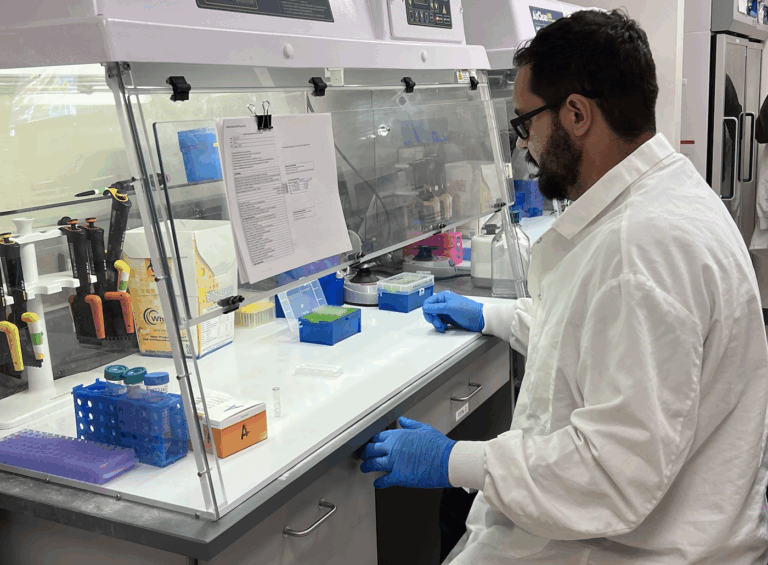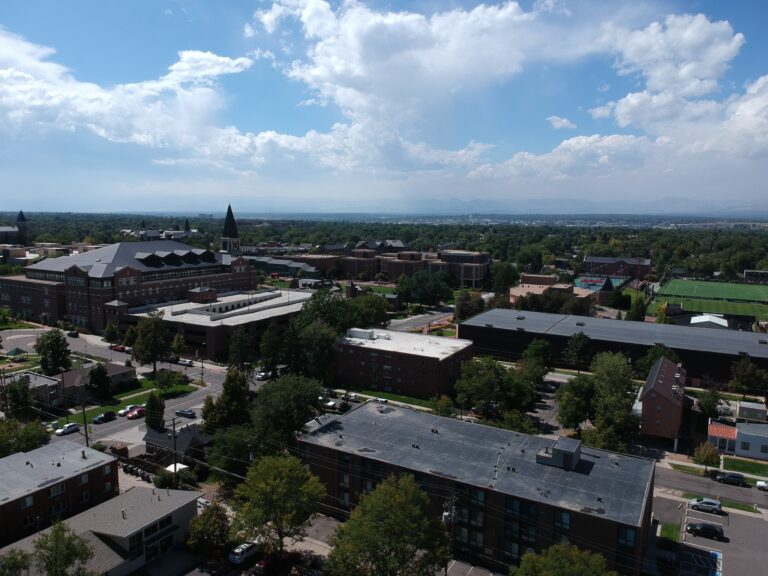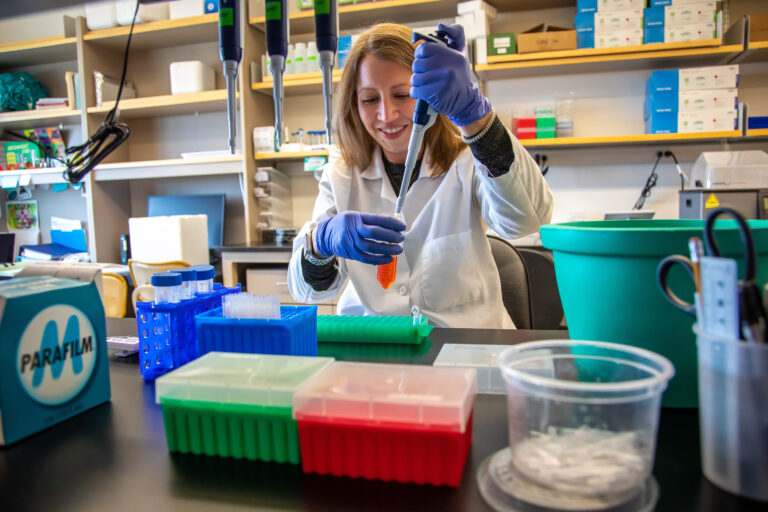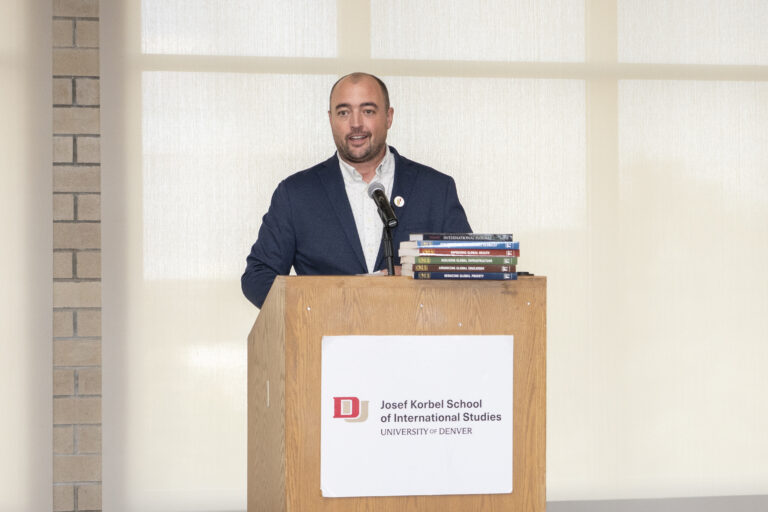As policymakers scramble to understand how artificial intelligence might affect adults in the workplace, one researcher at the University of Denver is asking a different question: What is AI doing to our children?
Three years before ChatGPT entered the lexicon in 2022, development psychologist Pilyoung Kim, Ph.D., a psychology and neuroscience professor, launched the Center for the Brain, AI, and Child. Her goal: to understand how children’s relationships with intelligent machines could shape their emotional and cognitive development — for better or worse.
Before joining DU in 2012, Kim worked at the National Institute of Mental Health. “My background is as a developmental psychologist as well as a pediatric neuroimager,” Kim said. “That means I study child brain development and the role of their experience in their brain development, as well as parent-child relationships.”
Much of her early career involved studying families living in poverty. “As a family, not all of them experience a high level of stress, but on average, they are a bit more vulnerable to be exposed to a higher level of stress,” Kim said. “Is there anything that I can do to help them to lower that stress so that they feel like they enjoy parenthood and the parent-child relationship more?”
Kim’s work with DU’s SEED Research Institute led her to seek to leverage AI as a research tool. “I’m very interested in technology,” Kim said. “That’s when I started to collaborate with researchers in computer science to look at child-robot interactions to design a technology that is providing high-quality interactions to children.”
She soon discovered that there was a dearth of research on the topic and no clear consensus as to what defined a high-quality interaction from the developmental psychology point of view. To fill the void, Kim established the BAIC Center in 2019. Some of the center’s first work, supported by National Science Foundation grants, focused on social robot voice design and empathy-driven AI ethics and cybersecurity education.
BAIC’s early work was clearly ahead of the curve, but skyrocketing AI investment and usage means the world has caught up with it. “Now I’m actually focusing more on really trying to understand the AI-child relationship,” she said. “When I first started, the AI’s ability to hold a natural conversation was very limited, but now the AI talks just like their best friends. For young children to young adolescents, how do they conceptualize this relationship? How much impact does this relationship have on them and their emotions, social relationships and creativity?”
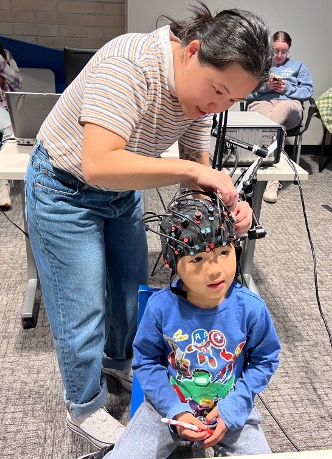
In 2024, BAIC Center researchers presented a paper investigating the anthropomorphism of AI from the perspective of young children at the CHI Conference in Honolulu, Hawaii. “Humans apply human-like qualities to non-human entities,” Kim said. “This is a very common phenomenon, and we do this a lot on machines, including social robots and AI chatbots.”
The rise of AI has led Kim to focus on AI-child research during her current sabbatical as a visiting scholar at Stanford University. “People really want to know about AI child safety and the impact of AI companions on child development, so there’s a lot of urgency in this area,” she said. “I am still very excited about the possibilities of these chatbots helping with education and therapy, but as a researcher studying child development, I’m also very interested in how to make these technologies safer for children. I see that as an important role that researchers like me have at this time, with such headspinning development of AI and the deployment of this technology.”
As of fall 2025, the team is finalizing the data collection for research focused on digital companions and related safety concerns. With recent reports of AI chatbots encouraging suicide to young users, it’s a timely issue. “There have been some unfortunate consequences for a small number of youth who have had really extensive relationships with AI companions, and that led to a negative result,” Kim said. “That definitely raised a lot of concerns for people in terms of safety.”
“What are the psychological mechanisms behind this emotional reliance on AI companions? We know AI does not have genuine emotions. It cannot love us back, no matter how much we want it to be loving us back. I really want to understand that mechanism.”
Kim also serves on advisory boards pushing for responsible AI policies. “There’s a lot of effort right now to put together some guidelines for policy for AI companions and AI chatbots for youth,” she said. “That includes researchers, policymakers, and university staff, but also industry people with OpenAI and other companies.”
“Because the technology evolves so fast — unprecedentedly fast — it puts a lot of pressure on the research,” Kim said. “Sudy design alone can take many months, and then you have to recruit participants. Research is just inherently very slow, for good reason: It’s for rigor and protections for participants. Trying to do that in a much more concentrated timescale definitely has been very challenging.”
About 15 DU students and faculty members are involved with the BAIC Center’s research, and the team collaborates across DU and other research institutes. Tom Yeh, PhD, associate professor of computer science at the University of Colorado Boulder, is one such collaborator. He has worked with Kim on projects that received NSF funding from 2019 to 2021. “It’s a pretty fruitful, productive collaboration,” Yeh said.
For academics such as Kim and Yeh, the landscape has shifted markedly in the past three years. “I’ve been studying AI for many, many years,” Yeh said. “Before, I had to explain to people what AI really is. Nobody knew. Now everybody knows what AI is, and even young kids are exposed to AI at a very early age. It happened so quickly.”
He added, “We just don’t know the impact, so there’s an urgent need to study how AI may affect our kids’ brains.”
